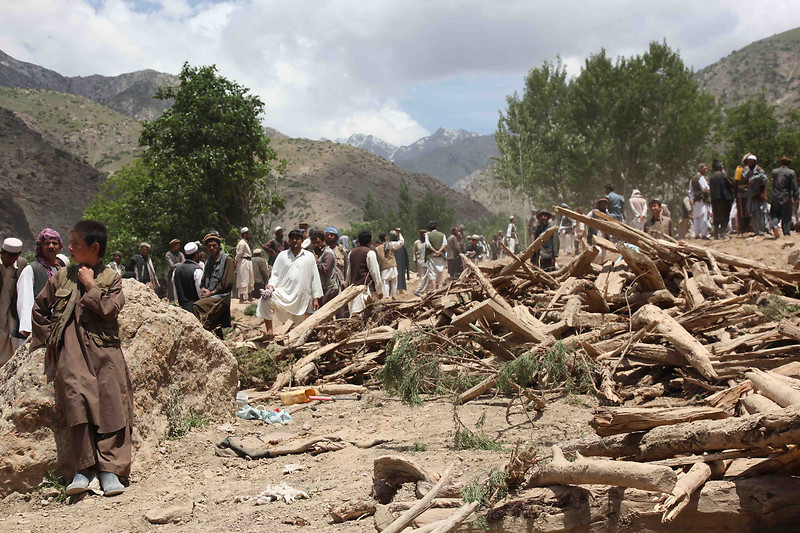Taliban Does Not Honour Promise Not To Hamper Afghan Quake Relief Efforts
The aftermath.

NEW DELHI: As the death toll from the 7.5 magnitude that struck Afghanistan (with casualties in neighbouring Pakistan as well) rose to 385, the Afghan Taliban has said that it will not interfere with Afghan government-led efforts to deliver assistance to those affected.
Taliban spokesperson Zabihullah Mujahid said that fighters were instructed not to attack members of any group, including the Kabul government, working to deliver aid to quake-stricken northeastern Afghanistan.
The statement came as relief to aid workers and officials, as several of the affected regions in Afghanistan have a strong Taliban presence. The Taliban controls parts of affected Badakhshan province, and reportedly captured Wardoj, the district next to the epicenter, on Oct 2.
However, despite the Afghan Taliban pledging that it will not interfere with rescue efforts, some reports indicate that the reality on the ground is different. NPR's Phillip Reeves reported, “The Taliban says it's told its fighters to help aid agencies get to the remote areas where the earthquake struck, yet the militants are continuing their fight with the Afghan government. Overnight they seized control of the district right by the northern border and close to the epicenter of the quake.”
Reuters reported that Taliban fighters seized control of a district capital of Darqand in Takhar province in northern Afghanistan in the early hours of Wednesday. Reuters stated: “Abdul Khalil Asir, a spokesman for the Takhar police chief, said security forces had withdrawn from the district after six hours of fighting overnight. He gave no information on casualties but Taliban spokesman Zabihullah Mujahid said in a statement that 12 police were killed and several wounded. Two Taliban militants were also killed and three wounded, he said."
Several officials had expressed concern that Taliban influence would hamper aid efforts. Wais Ahmad Barmak, director of Afghanistan’s National Disaster Management Authority, suggested to lawmakers this week that the Taliban presence in several quake-affected areas was a matter of concern. “We are faced with security problems in Kunar, Nuristan and Badakhshan provinces,” Barmak told lawmakers on Wednesday.
Further, the affected regions -- located in the Himalayas -- are remote and difficult to reach, even without Taliban interference. Lack of information is evident in the fact that the Afghan government has not updated its casualty figures -- 115 deaths and 583 injured-- since Tuesday.
Another related concern is that the affected district are the scene of reports of Islamic State activity, including Nangarhar district, that has reported 18 casualties.
Meanwhile, in Pakistan, the National Disaster Management Authority said that 267 Pakistanis were killed, 220 of them in the northwestern Khyber Pakhtunkhwa province. The quake damaged 10,586 houses in the country's northwest. Shangla is the worst affected town, with 49 people killed and 228 injured. Another 32 people died in Chitral, the Pakistani town closest to the epicenter of the quake.
Further, concern remains that given the slow reach of rescue and rehabilitation efforts, the people in the affected areas will be faced with a brutally harsh winter. With housing in shambles, the Himalayan winter may claim even more lives.



